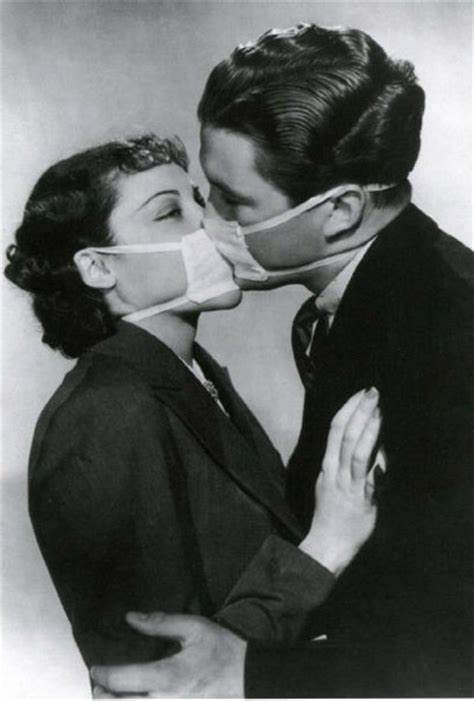The Daily Escape:

Coronavirus or not, it’s always business as usual – credit: Dave Note
The photo demonstrates why the coronavirus won’t be contained. 21st century humans will do what they want, when they want, and how they want. They’ll trust that their government will sort out the consequences.
We need to take a hard look at resilience, which is defined as the ability to recover quickly from illness, change, or misfortune. We talk about it for individuals, markets, governments, and society. In truth, it applies to every system on earth.
We had our first wake-up call about American resilience with 9/11, followed in 2005 by Hurricane Katrina. We watched the news, and saw that America was unable to snap back quickly, that we were powerless in the face of incomprehensible disaster.
There are still scars in New Orleans 15 years later.
We have ignored that the Covid-19 virus is at least as infectious, and possibly more than, the normal flu virus we see every year. But the mortality rate of Covid-19 is about 2%, or about 20 times as deadly as the normal flu, which has a mortality rate of around .1%.
Thus far in 2020, 19 million cases have been reported to the CDC, with 10,000 deaths and 180,000 hospitalized. Multiply 10,000 by 20, and that’s 200,000 deaths in the US, and following the flu model, perhaps 3,600,000 incremental hospitalizations.
We need to think about our resiliency. According to the American Hospital Association, there are 924,107 staffed beds in hospitals, down about 53,000 beds since 2000. Of the 2020 total, 792,417 are in community hospitals. The national occupancy rate for all of those beds is about 65%, based on the latest figures from 2017, so perhaps we have sufficient beds, assuming all hospital beds are equally capable.
Logistics will drive our resilience response. There is much to learn from the Chinese response. Wuhan didn’t have enough beds when the Covid-19 virus struck, and built two new hospitals in an attempt to have a place for all victims who needed to be in a hospital setting. They quickly had shortages of sterile gowns, masks and gloves. Then they had a shortage of health care professionals, and moved some professionals to Wuhan to deal with the explosion of cases.
They quarantined cities, something that we can’t do effectively without declaring martial law.
But, it gets more difficult. Covid-19 is a severe respiratory illness. Victims need the kinds of breathing therapies equipment that are usually in limited supply in each hospital. The NHS in England only has 15 available beds to treat the most severe respiratory failure in the entire country. They say they will struggle to cope if there are more than 28 patients who need them.
Testing is an issue, because without tests, we can’t be sure that the patient has the virus, and test kits are in very short supply. Iran reported on the BBC that it had just 14 test kits in the country at the time of the outbreak.
Live Science reports that in early February, the CDC sent testing kits to labs across the US, but a glitch in the kits made them unusable. Now, just five state health departments: California, Illinois, Nebraska, Nevada and Tennessee, as well as the CDC, have the ability to test for the virus. As of Feb. 26, just 445 people have been tested in the US, not including the travelers who returned on evacuation flights. In contrast, the WaPo reported that as of Feb. 25th, South Korea had tested more than 35,000 people for the virus.
How will America scale up?
We need tests that work, equipment to treat respiratory failure, hospital beds, sterile gowns and gloves, along with trained healthcare professionals. Where will they come from? These are the questions the media and politicians should be asking Mike Pence, the new Covid-19 Czar.
Don’t count on answers. The administration has already told the federal government that all communication to reporters and others, is to go through Pence. That’s even more dangerous, because there is no one who will tell Trump or Pence anything they don’t want to hear. And Pence is muzzling the scientists who really know what’s going on.
The economic consequences are even greater than the blood-letting in the stock market this week would lead you to believe. The health consequences are enormous.
What about the political consequences? We’re in the middle of a presidential election, so we’re bound to hear the right and left version of this story. Wrongo doesn’t want Democrats to try and exploit the government’s less-than-adequate efforts to contain the virus.
They should be rational. They should invite scientists to testify to break through the administration’s spin. They should pass a supplemental spending bill aimed at containing the crisis based on the scientists’ advice.
This is a time for good policy that will turn out to be good politics.

In this instance, Trump and Pence simply cannot contain all the bad news. So they either change (not possible) or collapse. It turns out the wall along the Mexican border has very little to do with real national security.
We’re seeing, for the first time, this ignorant, incompetent, narcissistic president attempting to deal with a real crisis, one that’s not of his own making. Truly frightening.
What’s truly frightening is the “we the people” who will likely re-elect a corrupt, ignorant, incompetent and narcissist man with enthusiasm. Unfortunately his likely opponent is potentially just as frightening. What’s wrong with Americans?
Ottho: re who elected Trump, I suggest it was not “we the people,” it was an long out of date electoral college that privileges dirt over people.